

Countless doctors and nurses have been fighting on the front line against the coronavirus outbreak and been hailed for their selflessness and dedication. But many other people in the medical field, such as logistics workers, property personnel and hospital cleaners are also playing a vital role in ensuring the safety of Chinese people.
Wang Baozhu, who is in his 60s, is a cleaner at the Longgang District People’s Hospital of Shenzhen in southern China. He is mainly responsible for the cleaning and disinfection of the hospital’s peripheral areas.
After the outbreak, his duties also included emergency disinfection work in all departments and the collection and disposal of the clinical waste of patients infected with the novel coronavirus.
The following schedule shows a typical working day for Wang. This particular day began with a telephone call in the middle of the night.
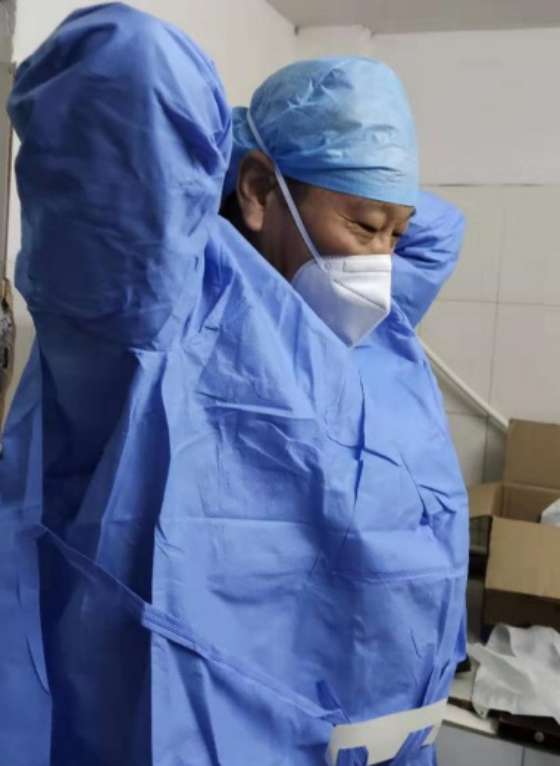
1:30 a.m. - 3 a.m.
The hospital's customer service center calls to wake up Wang, who had only just gone to sleep. A patient suspected of being infected with the novel coronavirus has just received emergency treatment at operating room No.5 of the inpatient department, and the room needs emergency disinfection.
Wang gets out of bed, rushes to the hospital, puts together a spray disinfectant as quickly as he can, puts on a protective suit, and enters the operating room, where he begins applying the disinfectant.
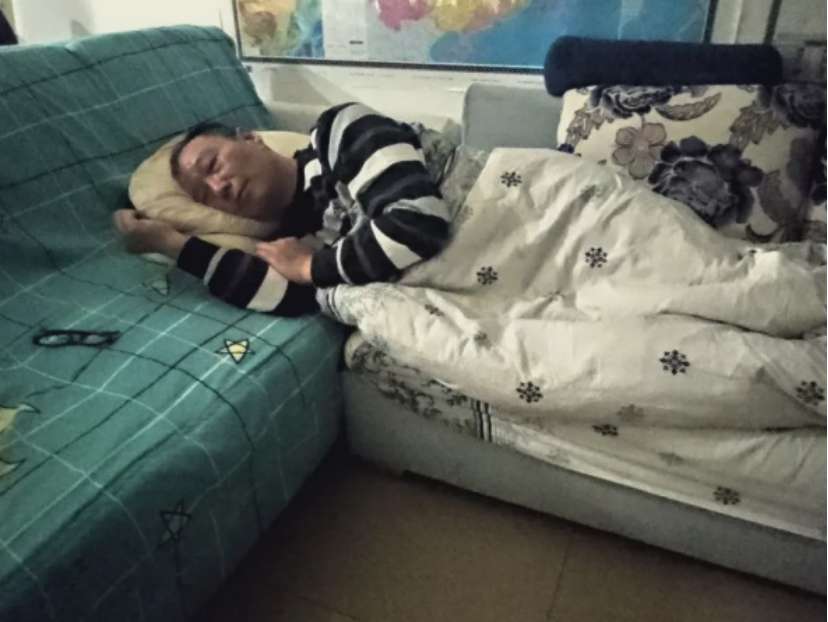
After this hard task at the hospital, Wang takes off his protective clothing, takes a shower in the hospital’s designated cleaning area, puts on clean clothes and quickly goes home. Not wanting to disturb his family, he sleeps on the sofa with his clothes on. It is 3 a.m.
5:30 a.m. - 6 a.m.
After sleeping for just over two hours, it is time for Wang to get up and go to work. After washing, Wang has breakfast: a bowl of white porridge with pickles and two steamed buns.
6:15 a.m.
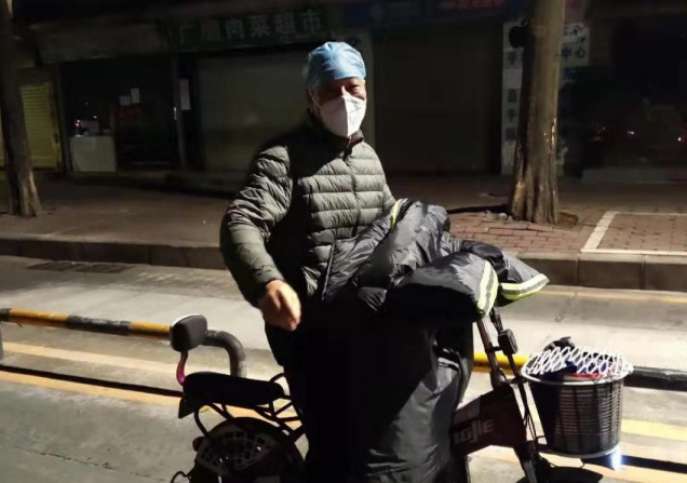
Just before dawn, Wang goes out for work.
6:40 a.m.
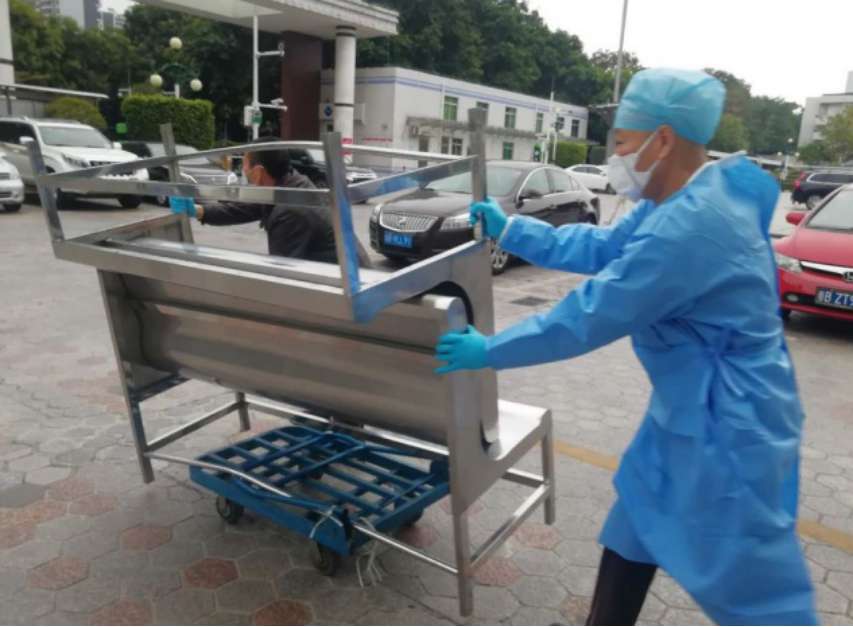
Wang arrives at the hospital, takes his temperature, and goes in. Another busy day begins.
6:45 a.m. - 7:30 a.m.
Wang inspects the cleaning work at the entire peripheral area of the hospital and arranges everyone's work for the day.
7:30 a.m. - 8:30 a.m.
After putting on his protective clothing, Wang goes to the fever clinic to collect medical waste.
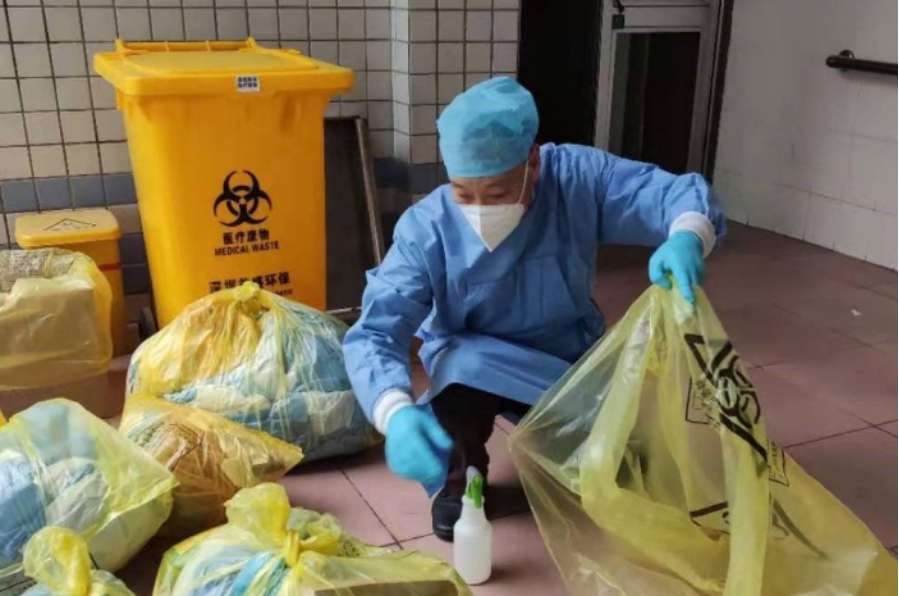
Dealing with clinical waste from patients infected with the novel coronavirus is without doubt the most dangerous job in the city right now. Wang insists on doing the work himself as he is more experienced.
8:30 a.m. - 11 a.m.
After disposing of the medical waste, Wang makes up a disinfectant and sprays the key areas and departments of the hospital once again, including the fever clinic, observation room, emergency room, blood sampling room and laboratory.
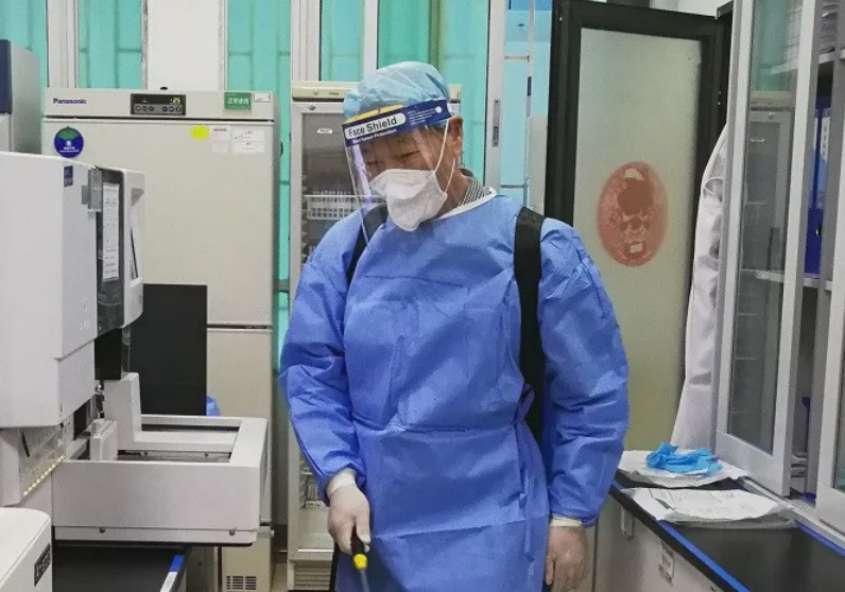
During times when protective materials are in short supply, Wang can only wear insulating clothing, which offers lower protection. At one time when even insulating clothing was in short supply, Wang had no choice but to wear a raincoat to work.
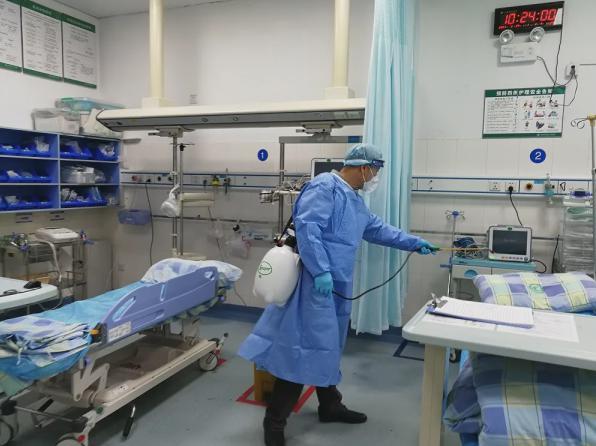
11:30 a.m. - 1:30 p.m.
Finally, it’s time for lunch.
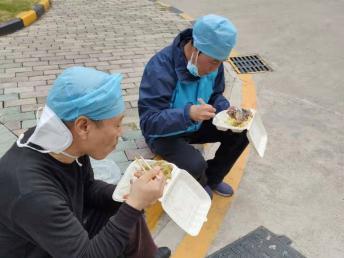
To prevent contamination in the office area, Wang and his colleagues, who frequently go in and out of high-risk areas, squat in a corner outside to take lunch.
As they can’t go to the canteen to get their food, property management sends someone to deliver it.
1:10 p.m.
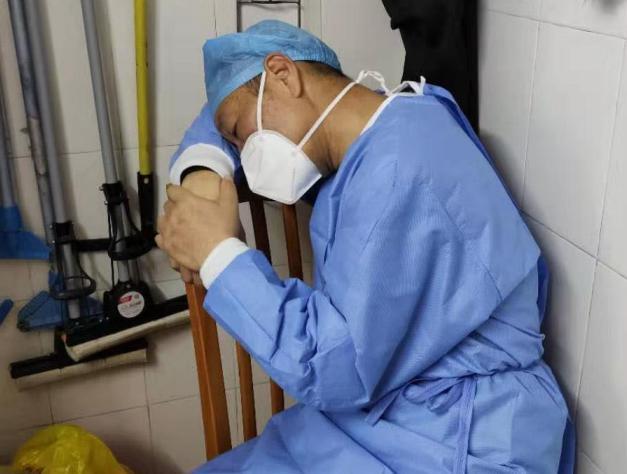
At noon, Wang is overcome by tension and exhaustion. Unable to lift his spirits, he takes a quick nap on his chair in the workshop.
1:30 p.m. - 5 p.m.
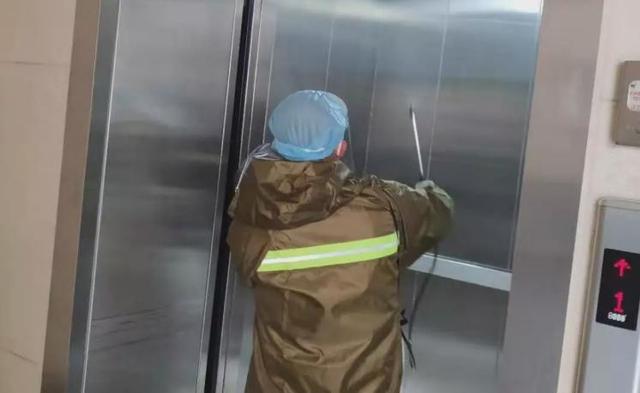
Recharged after his brief nap, Wang returns to work with vigor. He first conducts a comprehensive inspection of the public areas outside the hospital, and then conducts a second comprehensive disinfection of the infection department, emergency department, observation room, blood sampling room, laboratory, and 19 elevators and sewage channels throughout the hospital.
7:10 p.m.
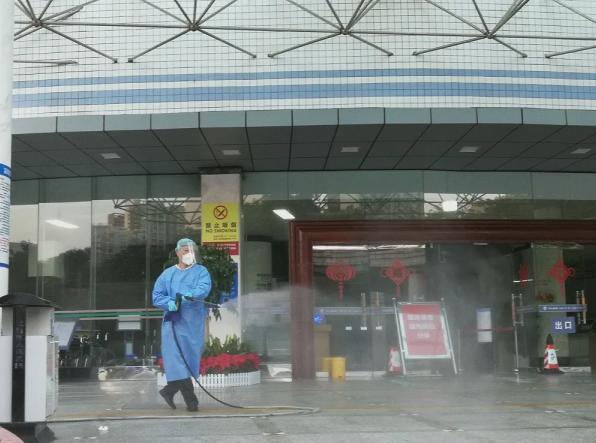
Taking advantage of the small number of people and cars in the hospital after work, Wang and his colleagues take time to spray and disinfect every nook and cranny of the hospital’s peripheral areas.
When all the work is done, it is already dark. Wang takes off his overalls and gasps in pain as his gloves are pulled off.
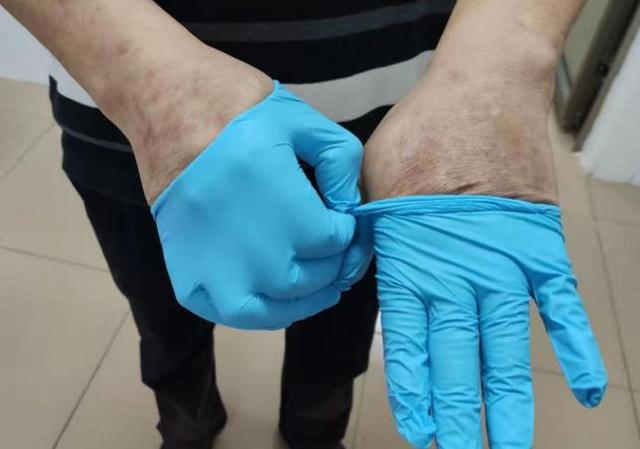
His hands have become red and ulcerated after so much contact with disinfectant.
8 p.m.
Wang comes home from work, and has supper with his wife. His children also take care of him. He feels that everything has been worthwhile.
10:30 p.m.
After a long day of work, Wang wants to rest. But he receives an emergency call from the hospital again, and rushes back for another emergency disinfection job.

 Award-winning photos show poverty reduction achievements in NE China's Jilin province
Award-winning photos show poverty reduction achievements in NE China's Jilin province People dance to greet advent of New Year in Ameiqituo Town, Guizhou
People dance to greet advent of New Year in Ameiqituo Town, Guizhou Fire brigade in Shanghai holds group wedding
Fire brigade in Shanghai holds group wedding Tourists enjoy ice sculptures in Datan Town, north China
Tourists enjoy ice sculptures in Datan Town, north China Sunset scenery of Dayan Pagoda in Xi'an
Sunset scenery of Dayan Pagoda in Xi'an Tourists have fun at scenic spot in Nanlong Town, NW China
Tourists have fun at scenic spot in Nanlong Town, NW China Harbin attracts tourists by making best use of ice in winter
Harbin attracts tourists by making best use of ice in winter In pics: FIS Alpine Ski Women's World Cup Slalom
In pics: FIS Alpine Ski Women's World Cup Slalom Black-necked cranes rest at reservoir in Lhunzhub County, Lhasa
Black-necked cranes rest at reservoir in Lhunzhub County, Lhasa China's FAST telescope will be available to foreign scientists in April
China's FAST telescope will be available to foreign scientists in April